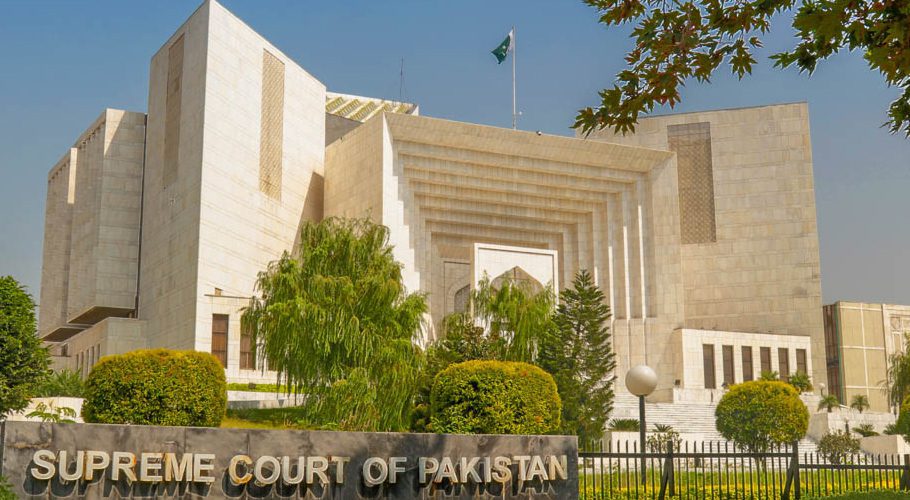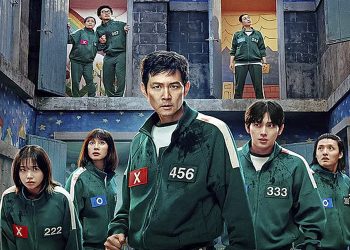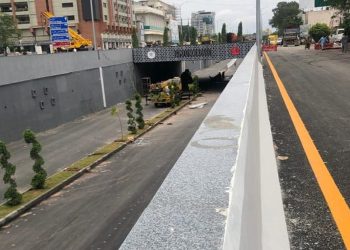ISLAMABAD: The Supreme Court on Wednesday adjourned the hearing on the suo-moto notice about the ruling of Deputy Speaker Qasim Suri to reject voting on no-confidence against Prime Minister Imran Khan, for the fourth consecutive day.
PTI’s counsel Babar Awan on Wednesday began his contentions over the case related to the Speaker’s ruling over the no-trust motion against the prime minister before the Supreme Court’s five-member bench headed by Chief Justice Umar Ata Bandial.
The bench of the apex court also comprises Justice Ijazul Ahsan, Justice Mohammad Ali Mazhar, Justice Munib Akhtar, and Justice Jamal Khan Mandokhel.
Babar Awan said that Shehbaz Sharif has demanded the formation of a commission in a press conference. “Petitioners want to ignore the reference of the security committee,” he said. “Opposition wants a brief order of the court in their favor,” he further said.
“Whether the constitution of Pakistan can be compared with India, Australia, or England?” he questioned. “A political party having government in Centre, provinces, Kashmir and GB, they want to ignore them,” he said. “They claimed they have come to save the democracy,” he said. “If all parliamentary proceedings not coming in the ambit of Article 69,” PTI counsel questioned.
“It seems the deputy speaker’s ruling has only allegations and no finding,” the chief justice said. “Can the speaker gives such a ruling without describing facts,” CJP questioned. “This is the constitutional point for the court to decide,” the top judge said. “Whether the speaker could issue ruling outside the ambit of Article 95, which not on the agenda,” Justice Bandial questioned. “You should defend the ruling but on substantial grounds,” the Justice observed.
“What happened at Sindh House and Lahore’s hotel can be ignored. Every person should compulsorily be obedient to the law and the constitution,” Babar Awan said. “It is compulsory for citizens to remain loyal to the state. Those coming from abroad have also their rights, these rights are not given in constitutions of other countries,” he argued.
“Are you describing the background of the speaker’s ruling,” the chief justice questioned. “Yes sir this is the background,” Awan replied. “It is now compulsory for you to tell the conclusion,” the CJP said.
“The case in the court is not of basic human rights, it is must for all citizens to remain loyal to the state,” Babar Awan stated.
“You have told three ways outs,” Awan said. “Don’t tell us the way outs, which we find ourselves,” CJP replied. “You must talk on facts,” Justice Bandial said in an interchange with Babar Awan.
“Where are the minutes of the National Security Council,” the chief justice asked. “On what material the deputy speaker exercised powers. Talk on facts before the court,” CJP said.
“The diplomat sent the message of the national security council of another country to three persons,” Babar Awan said. “The message was given to the Head of Mission, Deputy Head of Mission, and Defence Attache via the embassy,” he said. “The letter arrived on March 07 after a meeting of our diplomats abroad,” Babar Awan said.
“There were four things in the letter, I could not describe details under the official secret act. The foreign office held a meeting with prime minister and the foreign minister after the letter. Concerned Director-General gave a briefing in the cabinet meeting,” the council said.
“The political party could not talk if the official matters have to discuss,” Attorney General Khalid Jawed objected.
“When the federal cabinet session held,” the chief justice asked. “I will tell the court after getting information about the date,” he said.
The court rejected the PTI counsel’s request for an in-camera briefing when he sought the court’s permission to inform it on the briefing of the foreign office. “We are not demanding the letter now,” CJP said.
Babar Awan also submitted footage of the armed forces spokesman with a private television channel. “The spokesperson said that we have the same stance as what is said in the National Security Committee,” Awan said.
Chief Justice Bandial said that paragraph 4 was important in the court’s short order. “You are leading us to some other side. Is it the issue of Article 69 or not,” CJP asked. “We have to keep in mind foreign constitutions or not, it is our issue. We have to conclude this case as delay causing problems,” Chief Justice Bandial said.
Barrister Ali Zafar said that the steps of the President could not come under judicial review, “The solution is a new election,” the President’s counsel argued.
“The parliament could not intervene in judicial proceedings, neither the court could interfere in parliamentary proceedings,” the counsel argued.
“It could not intervene if the constitution violated,” CJP Bandial questioned. “There is a difference between a procedure and the constitution’s violation,” the lawyer replied. “Challenging the deputy speaker’s ruling in court is interference in the parliament,” he argued. “Instructions to the deputy speaker will be equal to directing the parliament, which is unconstitutional,” he said.
Chief Justice said that seemingly the no-confidence motion was destined to success, the speaker’s ruling came on the day of the voting.
“The deputy speaker’s ruling has set a new tradition and opened a new path,” the CJP observed.
The court adjourned a further hearing of the case till 9:30 am tomorrow.



































